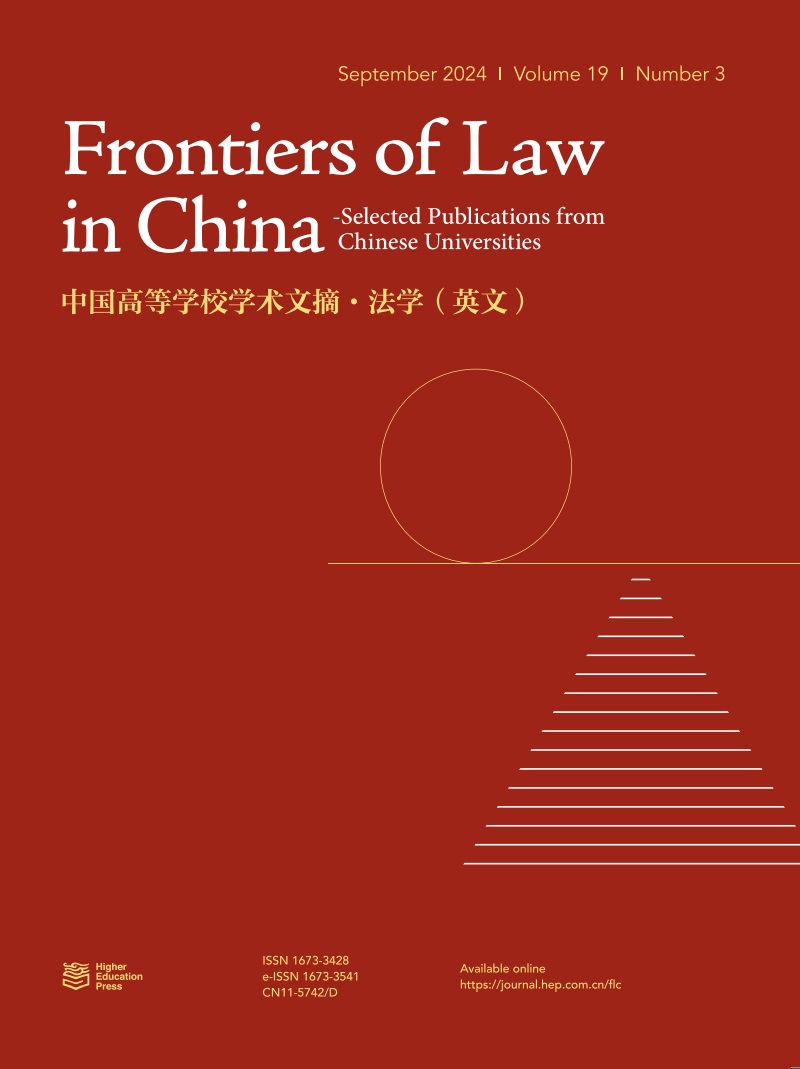DIGITAL INCLUSION FOR PERSONS WITH DISABILITIES IN CHINA UNDER COVID-19: HOW FAR HAS CHINA COME?
IF 0.1
4区 社会学
Q4 LAW
引用次数: 0
Abstract
This article reviews social regulatory and redistributive policies in China that aim at fostering digital inclusion of persons with disabilities. We examine the emerging Chinese policies and how China has responded to the impacts of the coronavirus disease (COVID-19) on digital inclusion in terms of redistribution, market regulation, involvement of persons with disabilities and disabled people's organizations (DPOs), and awareness-raising campaigns. The policy review demonstrates that the Chinese policy framework contains a few redistributive initiatives, for example, cash transfer programs, and free distribution of information and communications technology (ICT). These have the potential to increase the uptake of ICT among persons with disabilities. The Chinese policy framework also includes provisions to ensure consultation with individual persons with disabilities and DPOs in the deliberation and implementation of ICT accessibility policies. While China has initiated awareness-raising campaigns among market actors about the importance of digital inclusion, so far, the Chinese government has adopted little legal regulation of the market to foster accessibility to ICT. The article thus argues that some of the limitations may be due to the way state-market relations have developed since the economy opened up in 1978. Apart from the growing benefits of several cash transfer programs, we have not seen major changes or adjustments to the current policy framework during the efforts to mitigate the impact of COVID-19 on digital inclusion.2019冠状病毒病背景下的中国残疾人数字包容:中国取得了多大进展?
本文回顾了中国旨在促进残疾人数字包容的社会监管和再分配政策。我们从再分配、市场监管、残疾人和残疾人组织(DPOs)的参与以及提高认识运动等方面研究了中国正在出台的政策,以及中国如何应对冠状病毒病(COVID-19)对数字包容的影响。政策审查表明,中国的政策框架包含一些再分配举措,例如现金转移计划和信息和通信技术(ICT)的免费分配。这些都有可能增加残疾人对信息通信技术的吸收。中国的政策框架还包括确保在审议和实施信息通信技术无障碍政策时与残疾人个人和dpo进行磋商的规定。虽然中国已经在市场参与者中发起了关于数字包容重要性的提高认识运动,但到目前为止,中国政府对市场采取的法律法规很少,以促进信息通信技术的可及性。因此,文章认为,一些限制可能是由于自1978年经济开放以来国家-市场关系的发展方式。除了几个现金转移支付项目的效益越来越大之外,在努力减轻COVID-19对数字包容的影响期间,我们没有看到现行政策框架发生重大变化或调整。
本文章由计算机程序翻译,如有差异,请以英文原文为准。
求助全文
约1分钟内获得全文
求助全文
来源期刊

中国法学前沿
LAW-
CiteScore
0.20
自引率
0.00%
发文量
398
期刊介绍:
Frontiers of Law in China seeks to provide a forum for a broad blend of peer-reviewed academic papers of law studies, in order to promote communication and cooperation between jurists in China and abroad. It will reflect the substantial advances that are currently being made in Chinese universities in the field of law. Its coverage includes all main branches of law, such as jurisprudence, constitutional jurisprudence, science of civil and commercial law, science of economic law, science of environmental law, science of intellectual property, science of criminal justice, science of procedural law, science of administrative law, science of international law, science of legal history, science of history of legal thoughts, etc.
 求助内容:
求助内容: 应助结果提醒方式:
应助结果提醒方式:


